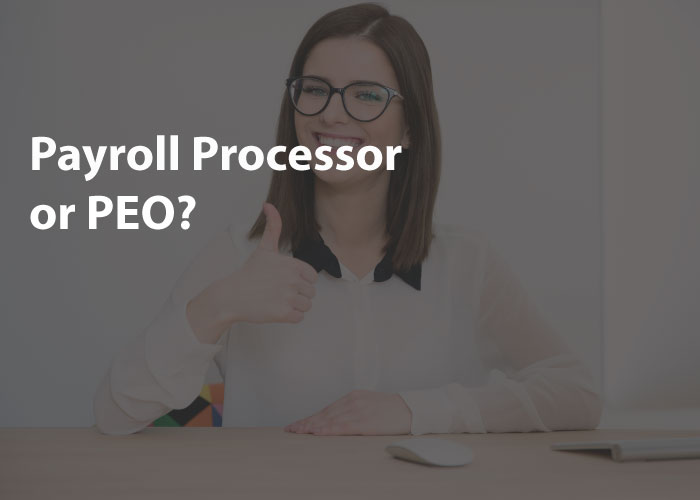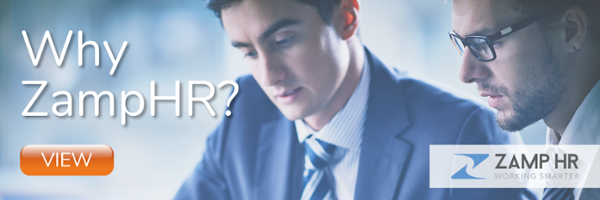For many organizations, payroll is one of the first things to be outsourced, and rightfully so with all its complexities and administrative hoops to jump through. From filing payroll taxes to benefits administration or compliance, there are numerous reasons to seek professional help.
And yet, while the choice to outsource may be simple, choosing who to outsource to… may not be.
In fact, the choosing between payroll processing services can be overwhelming as many differences exist. To simplify the conversation, we'll categorize the most common outsourcing solutions:
- Hire a certified public accountant (CPA) to handle payroll for you.
- Outsource to a payroll service provider (PSP).
- Outsource to a Professional Employer Organization (PEO).
What is a PEO?
A PEO is an organization that provides comprehensive services to help employers manage their human resource needs.
PEOs give employers access to a suite of services, including payroll, employee benefits, workers' compensation, and human resource management.
PEOs are also accountable for co-employment, a contractual agreement where the PEO is the employer of record for tax purposes. The client organization maintains control of day-to-day operations.
As part of the co-employment arrangement, payroll is reported under the Federal Employer Identification Number (FEIN) of the PEO rather than the client company. This means liability for payroll mistakes or missed deadlines is shared between the PEO and the client business.
What Is a PSP?
Payroll is essential to running a business, but it may be time-consuming and complex. PSP, is a company that offers payroll services to businesses. They can offer several benefits, such as calculating payroll taxes and deductions, issuing paychecks, and providing access to employee information. PSPs can also provide reporting and compliance assistance, such as filing payroll taxes, managing garnishments and other court orders, and other related services.
What Are the Main Differences Between a PEO and a PSP?
PEO services expand the range of choices available to businesses. There are a few key distinctions to keep in mind, though, if you're shopping around for a payroll processor:
- PEOs can handle a more significant share of human resources and benefits management.
- PEOs provide technology which streamlines your human resources, payroll, and benefits administration.
- You will have access to a broader range of HR, benefits, and safety experts in addition to traditional payroll professionals.
- While a PEO can serve the needs of businesses that are simply interested in payroll processing, it can also serve as a one-stop shop for all of an organization's human resources needs.
- A PEO's capacity to pool its client companies via co-employment gives the PEO economies of scale to purchase health benefits. This gives clients access to Fortune 500 level benefits at lower prices than clients would get on their own.
- Risk Mitigation: A PEO can help reduce a business's exposure to potential legal liabilities. They do this by providing guidance on compliance with employment law and helping monitor local, state, and federal rules and regulations. A PEO can also help manage employee records, reducing the risk of a data breach or other compliance issues.
When Should You Partner with a PEO Instead of a PSP?
Should you partner with a PEO or a PSP? The answer depends on your needs and goals, but in most cases, partnering with a PEO is the better choice.
A PEO provides all the benefits of a PSP but with the added advantage of covering the entire HR spectrum rather than just payroll. This can include employee recruitment, benefits administration, tax compliance, and more.
This makes it easier for you to focus on your core business rather than dealing with the day-to-day HR tasks.
The cost savings of a PEO makes it an attractive option. Choosing a PSP over a PEO only makes sense if you are not interested in cost-savings on workers' compensation insurance and group health insurance premiums.
Does a PEO Cost More Than Outsourcing Just Payroll?
When considering a PEO or a PSP, it is important to consider the cost of the services, the level of expertise, and the level of customer service offered.
Surprisingly, local PEOs tend to charge a similar amount to best-in-class payroll service providers. Nation-wide PEOs and PSPs have overhead to cover in the form of satellite offices across the country which means higher prices.



